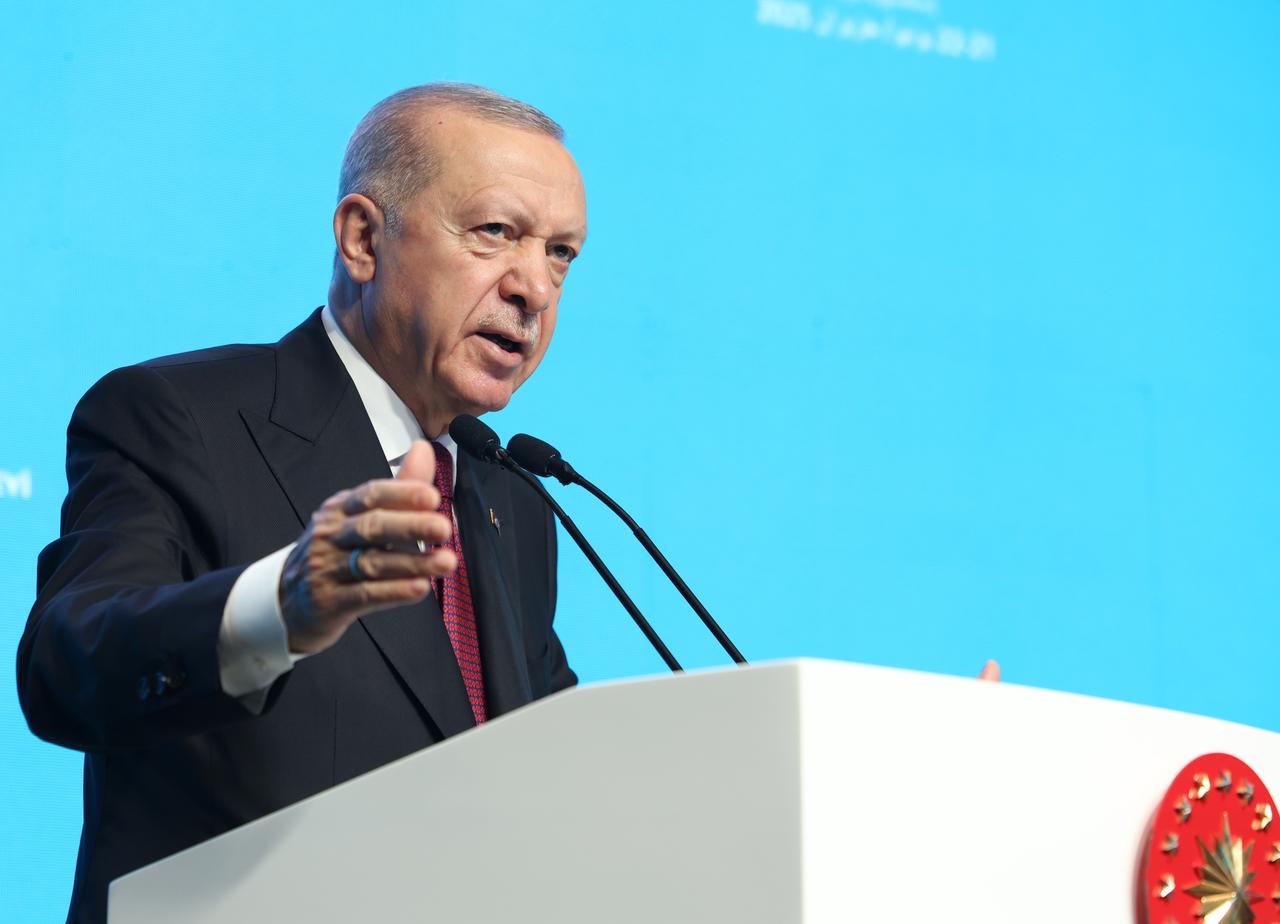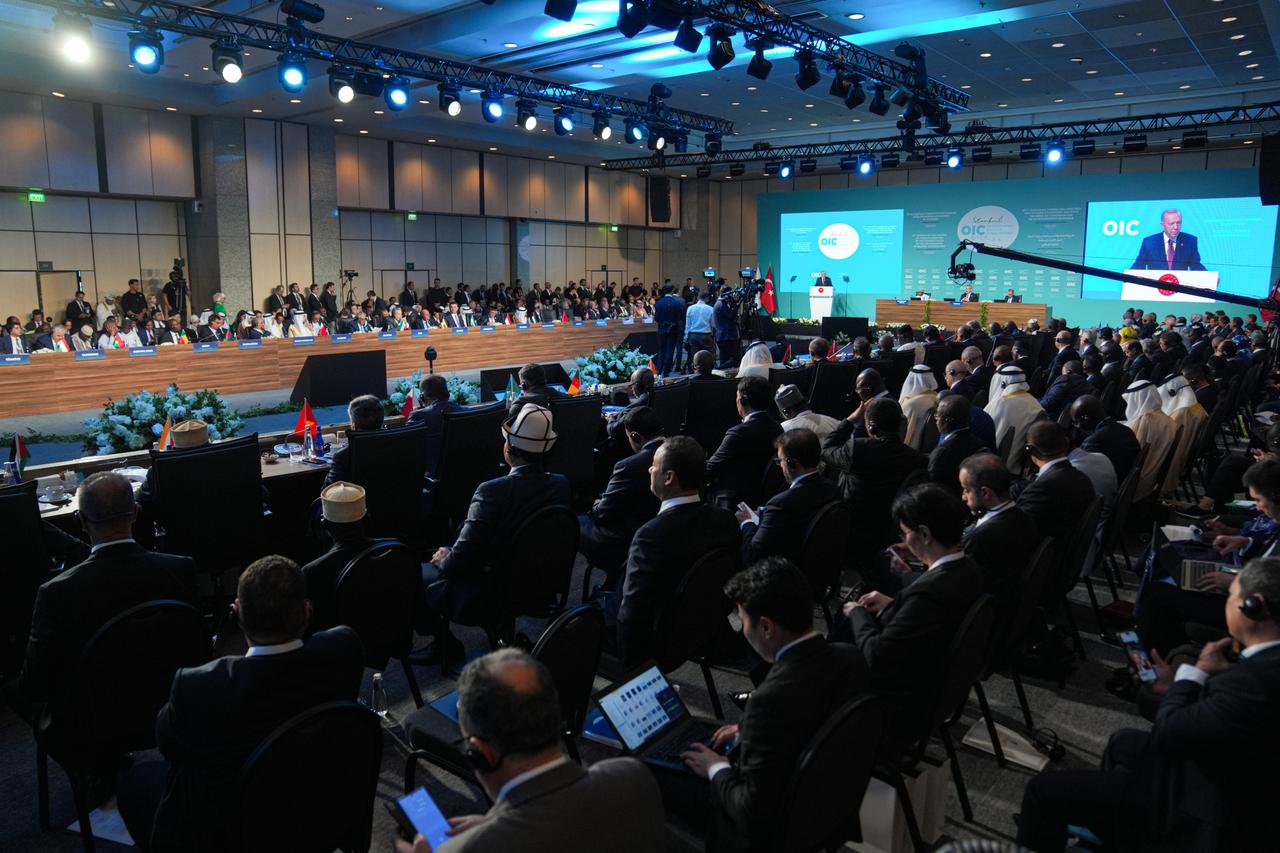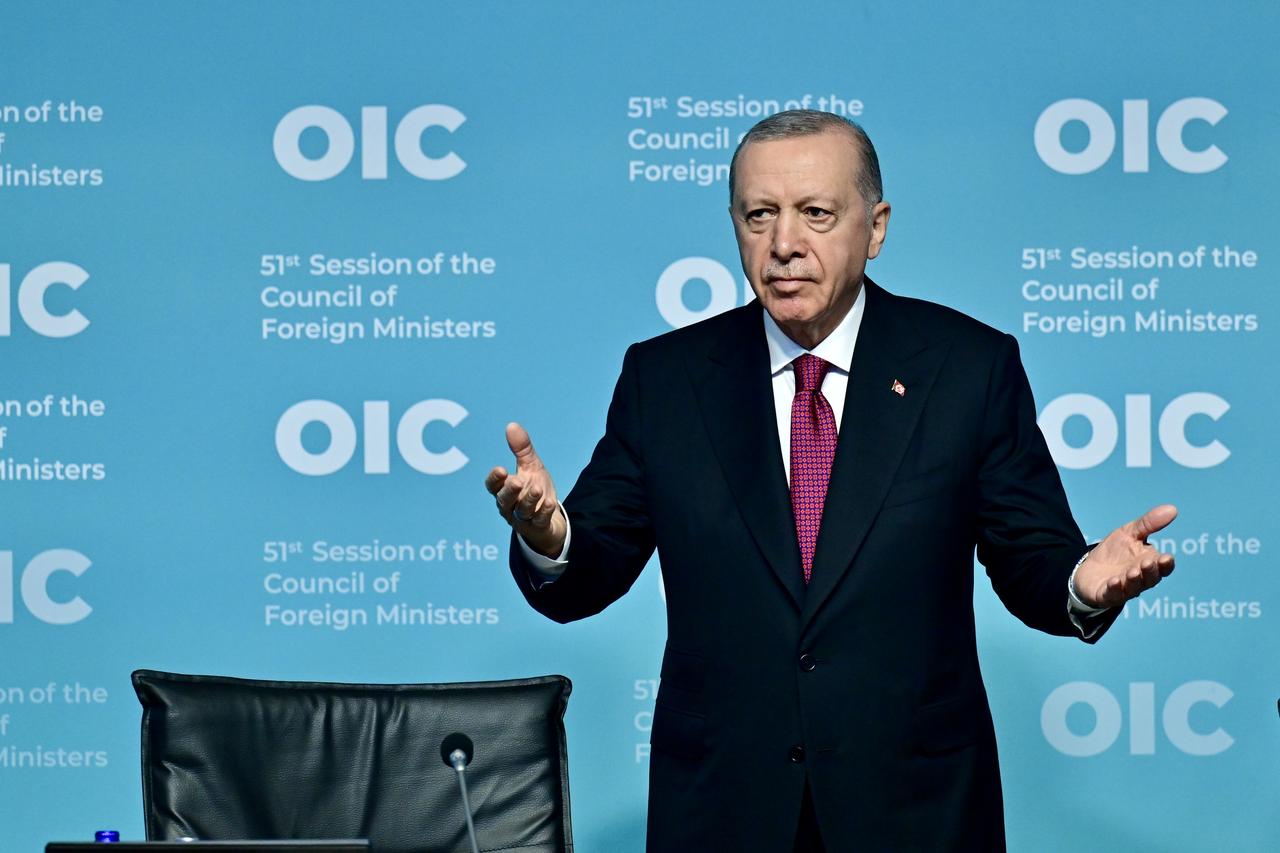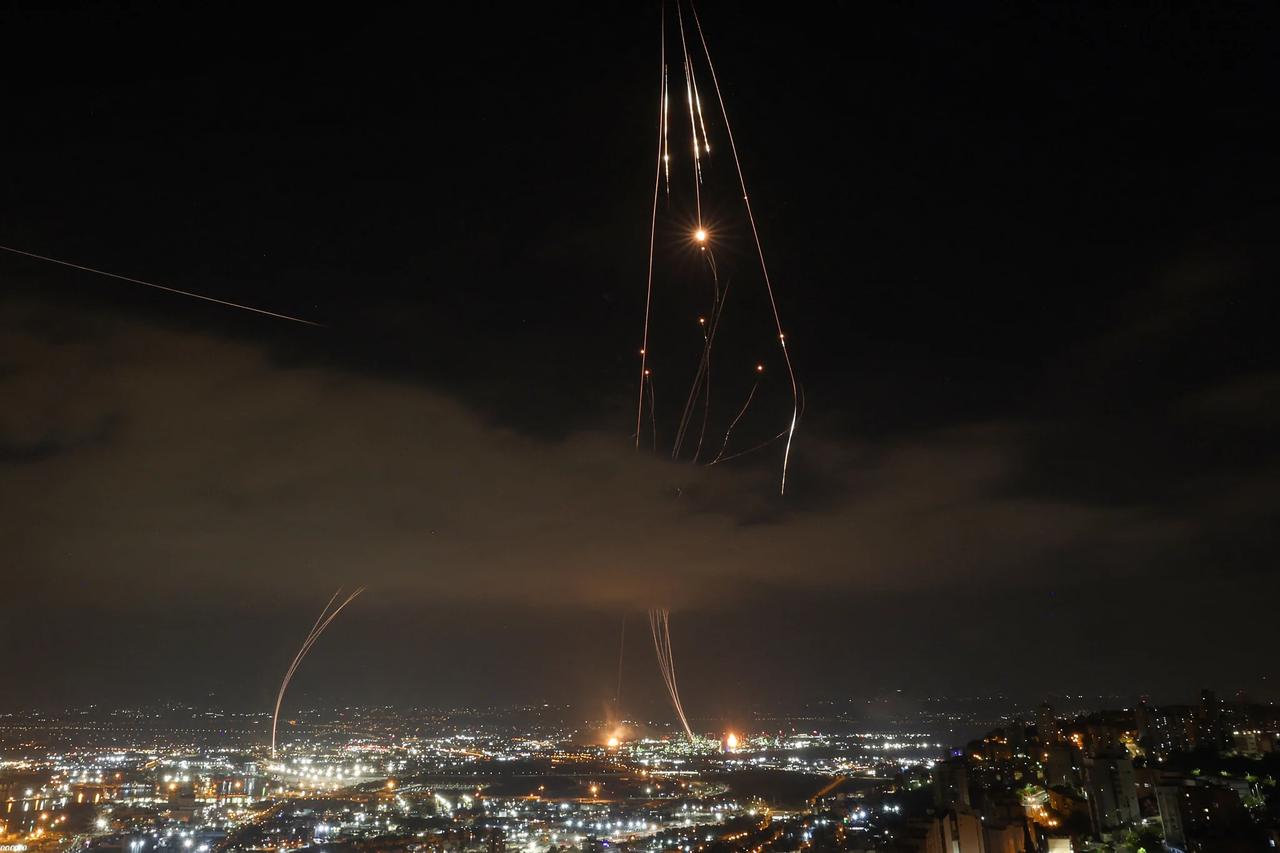
President Recep Tayyip Erdogan delivered a forceful address Saturday, calling for greater Islamic unity to counter what he described as Israeli aggression across the Middle East, warning against the establishment of a "new Sykes-Picot order" in the region during a major diplomatic gathering in Istanbul.
Speaking at the 51st Session of the Council of Foreign Ministers of the Organization of Islamic Cooperation, Erdogan drew explicit parallels between current regional tensions and the 1916 Sykes-Picot Agreement that carved up Ottoman territories after World War I, framing contemporary conflicts as part of a broader effort to redraw Middle Eastern boundaries.

"As Türkiye, I firmly stress that we will not allow the establishment of a new Sykes-Picot order in our region, with borders redrawn in blood," Erdogan told the gathering of Islamic foreign ministers, invoking the century-old agreement that divided Ottoman lands between British and French spheres of influence.
Erdogan made sweeping comparisons to historical atrocities throughout his address, stating that "two million of our brothers and sisters in Gaza have been struggling to survive for 21 months under conditions worse than those of Nazi concentration camps."
He extended these historical parallels further, directly comparing Israeli Prime Minister Benjamin Netanyahu to Adolf Hitler.
"Just as the spark ignited by Hitler 90 years ago set the world ablaze, Netanyahu's Zionist ambitions serve no purpose other than dragging the world into catastrophe," Erdogan declared, positioning current Middle Eastern conflicts within a broader historical framework of global destabilization.

Erdogan characterized Israel's military operations across multiple theaters as part of a coordinated campaign of regional destabilization.
"Israel's attacks on Gaza, Lebanon, Yemen, Syria, and most recently Iran can only be described as acts of banditry," he declared, presenting these actions as interconnected rather than separate conflicts.
The president argued that Israeli actions represented a systematic threat to regional stability.
"Israel continues to drag our region into instability; they have turned Gaza into a massive ruin before the eyes of the world," he said, while describing Netanyahu's government as "the greatest obstacle to regional peace."
Erdogan linked Israeli military actions to broader diplomatic calculations, suggesting that the timing of recent operations was designed to undermine ongoing negotiations.
"It is certainly noteworthy that the attacks occurred at a time when negotiations over Iran's nuclear program were gaining momentum," he said, claiming that "with the attacks on June 13, the Netanyahu government aimed to undermine the negotiation process."
The president offered explicit support for Iran's defensive measures amid recent regional escalations, framing Tehran's responses as justified under international law.
"Iran's measures to defend its people in the face of this state terrorism are legitimate and lawful within the framework of self-defense," Erdogan stated.
He expressed confidence in Iran's ability to weather current challenges, drawing on historical precedent. "We have no doubt that, with its strong tradition of statehood and the solidarity it has shown in the face of hardship, the Iranian people will overcome these difficult days as well, Allah willing," he said.

Erdogan's address emphasized the need for coordinated Islamic responses across multiple regional flashpoints, calling for solidarity that transcends individual conflicts.
"We must show greater solidarity to stop Israel's acts of banditry in Syria, Lebanon, and Iran, just as in Palestine," he said, presenting these as interconnected challenges requiring unified responses.
The president positioned the Islamic world as standing at a historical crossroads. "It is essential for the 2-billion-strong Islamic world to become a unified pole on its own. We are on the brink of a new era in which the Islamic world will play a much greater role," he declared.
Erdogan called for setting aside internal differences in favor of shared objectives. "When it comes to our shared causes and common interests, we must set aside our differences and stand united," he said, while urging member states to pursue "coercive measures against Israel based on international law and the U.N. Charter."
The president welcomed Syria's return to OIC membership as evidence of regional reintegration efforts. "I would like to express our satisfaction with Syria's return to OIC membership and the progress made toward its reintegration into the international community," he said, emphasizing that "Syria needs the support of all of us, the entire Islamic world, to protect its territorial integrity, national unity, and achieve lasting stability."
Erdogan's remarks came as the OIC continues to coordinate responses to conflicts spanning from Gaza to Iran, with member states facing mounting pressure to present unified positions on regional security challenges that have drawn in multiple countries across the Middle East.